The Dangers of Vaccinations: Be an Informed and Proactive Guardian for Your Beloved Animals
My Response to Learning that a 13-year-old Dog With Laryngeal Paralysis Was Given a 3-year Rabies Vaccination
Iwas a participant in an online group for people with dogs who suffer from a condition called laryngeal paralysis. My dog, who died from complications of this condition in July 2011, was suffering with it for several years. What was once a mild breathing issue for him became a more serious and acute problem after his second anterior cruciate ligament (ACL) surgery and second round of anesthesia.
After his second surgery, his breathing became markedly worse and I began to do research on the subject of laryngeal paralysis and the accompanying degenerative myelopathy, especially in the hind legs of dogs. There is a medical term for it called “GOLPP” or Geriatric Onset Laryngeal Paralysis Polyneuropathy.
I joined several online groups dedicated to this canine health issue. It is always a good idea to join these kinds of online groups when you want to learn as much as you can about a disease as quickly as possible and what those in the group have done to help their dogs feel better. In addition to gaining access to information in the files section, you can learn a lot from those who have gone through a similar experience. They can provide recommendations for the best veterinarians and specialists and also offer encouragement and tips.
My Dog’s Breathing Issues Improved with Alternative Healing Modalities
My dog’s breathing issues improved considerably through classical homeopathy and my own ongoing healing work with him that at the time included Reconnective Healing®, Tellington TTouch®, Reiki and acupressure. I believe that Reconnective Healing®, in conjunction with classical homeopathy and Tellington TTouch®, had the most profound effect on my dog’s overall improvement.
A woman in one of the laryngeal paralysis groups wrote to share how happy she was that her 13-year-old Labrador retriever was still with her and doing well after having had tieback surgery. In that kind of surgery, one of the two flaps in the back of a dog’s throat is tied back to enable the dog to take in more air and breathe with greater ease and comfort. It has its risks and aspiration pneumonia is among them. So she had a lot to be happy about.
However, in that same post, while celebrating the health and longevity of her dog and the success of the surgery, she also shared with the group that her dog was due for a rabies vaccination. So she took her dog to get the shot. Her post then incited a flurry of responses within the group and set off many alarm bells for a number of participants. I was among those who had a very strong response to her post.
The list moderator understandably did not appreciate all the responses, some of which were very vocal, and she ended the discussion. I thought it was a very important topic and I was in the midst of composing a post to send to the group when the discussion was ended.
So I decided to post my thoughts here in an open letter to any guardian who is considering vaccinating his or her senior dog or any dog whose health is compromised. Indeed, knowing what I know about the effects of vaccinations on the immune system, central nervous system, and the lifelong impact on the total health and well-being of an animal, I would caution guardians about re-vaccinating their dogs for any reason.
There are titer tests that can be done to show that a dog’s level of immunity is appropriate and that no re-vaccination is necessary. There are also exemption letters from veterinarians that can be obtained so a dog’s health will not be further jeopardized.
The best defense against disease is a healthy immune system. Unfortunately the over-vaccination of dogs has seriously compromised and adversely affected the long-term function of their immune systems. And those that are over-vaccinated are left to deal with lifelong chronic diseases that manifest in a variety of very unpleasant ways.
World-renowned research scientist and practicing clinician Dr. W. Jean Dodds shared the following information on Helen McKinnon’s website, It’s for the Animals, http://www.itsfortheanimals.com/DODDS-CHG-VACC-PROTOCOLS.HTM:
“Except where vaccination is required by law, all animals, but especially those dogs or close relatives that previously experienced an adverse reaction to vaccination, can have serum antibody titers measured annually instead of re-vaccination. If adequate titers are found, the animal should not need re-vaccination until some future date. Re-checking antibody titers can be performed annually, thereafter, or can be offered as an alternative to pet owners who prefer not to follow the conventional practice of annual boosters. Reliable serologic vaccine titering is available from several university and commercial laboratories and the cost is reasonable (Twark and Dodds, 2000; Lappin et al, 2002; Paul et al, 2003; Moore and Glickman, 2004).”

Dr. W. Jean Dodds. Photo from www.enzymes.com
Open Response to a Guardian who Vaccinated her Senior Dog
In addition to what I originally wanted to share with the guardian and those on the laryngeal paralysis list, I’ve added information on the topic to help other guardians make more informed decisions about vaccinating their pets.
I had intended to put up a blog post on vaccinations and am glad that I was prompted to write one sooner than later. What I share below is common knowledge among so many. But for those who may not be aware of studies and data to support minimal vaccinating of pets, here is what I’d also like to share with you, highlighting some important points:
“I was delighted to hear about your success with your wonderful dog, but then my heart sank when I read that you took her to get her 3-year rabies vaccination. I do understand that you were doing what you understood to be best for her and also what was required by the laws of your town and state. And having a 13-year-old dog myself, I understand your joy in having your precious dog with you still. Clearly you are a kind and caring guardian. You wouldn’t be on this list trying to do the best for your dog if you weren’t.
“I greatly appreciated seeing the many thoughtful responses from people on this list concerned for the health and well-being of your dog and I offer kudos and praise to them all. I believe they had you and your dog’s best interests at heart too. Admittedly, some could have had a gentler tone. Indeed, one of them offered you an apology and let you know it was just out of her concern for you and your dog.
“This discussion has been an important one, and perhaps it happened not by coincidence, but by Divine design so that some people on the list could learn some things they might not have known before. I was glad that for a time list participants were able to share their opinions on this very important topic that truly is critical to the health and well-being of all our animals. Indeed, I think it is central.”
Interestingly, perhaps it was also divinely planned for me not to be able to share this post on the group’s site, so I could get the opportunity to share it with everyone who reads my blog and happens upon this post.
Connections between Laryngeal Paralysis, Hypothyroidism and Vaccinations
There have been studies done showing a direct connection between laryngeal paralysis and hypothyroidism, an auto-immune disease. And there have also been a number of studies, including ones done by Dr. Dodds, showing the direct cause-and-effect relationship between vaccinations and autoimmune diseases such as hypothyroidism.
Interestingly, one of the clinical neuromuscular symptoms of hypothyroidism is laryngeal paralysis. So logically, one can easily connect the dots from vaccinations to laryngeal paralysis. Indeed, one of the predominant symptoms of rabies is laryngeal paralysis.
In an article entitled, “A New Look at the Vaccination Question,” Dr. Richard Pitcairn writes:
“We can expand our definition to say that vaccinosis is the establishment of, instead of the acute natural disease, a chronic condition which now has the time to develop a multitude of manifestations not ordinarily seen. Another way of saying this is that the process of laboratory modification of a viral disease to make a vaccination strain is the conversion of the disease from acute to chronic. The virus has been changed so that its natural tendency to arouse a strong response is gone. Instead it can be introduced into the body in a form that does not elicit much of a reaction. The result is the establishment of a chronic disease that has never been seen before in clinical practice.”

Dr. Richard Pitcairn. Photo from www.drpitcairn.com
He then shows how the symptoms of the acute diseases of canine distemper, rabies, and feline panleukopenia transform into lower-grade, but similar chronic, life-long diseases after animals receive vaccinations.
Dr. Pitcairn describes one set of the symptoms of the acute version of rabies as follows: “Unable to swallow because of paralysis of muscles of deglutition. Hanging down of the lower jaw.” On the chronic symptom side of his chart, he describes the corresponding vaccinosis symptoms: “Paralysis (or partial paralysis) of mouth, tongue or throat; sloppy eaters or drinkers; tendency to drool or lose saliva.” With this description, he, too, makes a direct correlation in his observations of the connection between the rabies vaccine and laryngeal paralysis symptoms.
Many Veterinarians Have Written about the Dangers and Adverse Effects of Vaccinations
There are numerous articles, many written by veterinarians, on the dangers and adverse effects of vaccinations, from Dr. Richard Pitcairn, Dr. Dee Blanco, Dr. Christina Chambreau, Dr. Stephen Blake, Dr. Patricia Jordan and so many more. Shirleys Wellness Cafe, www.shirleys-wellness-cafe.com, is just one of the websites dedicated to holistic health that offers an array of articles from veterinarians on the subject of vaccinations.
There are also a number of books written on the subject, from Catherine O’Driscoll’s Shock to the System and What Vets Don’t Tell You About Vaccines to John Clifton’s Stop the Shots!: Are Vaccines Killing Our Pets? and the award-winning book, Scared Poopless: The Straight Scoop on Dog Care, by Jan Rasmussen.
In his book Homeopathic Care for Cats and Dogs: Small Doses for Small Animals, Dr. Don Hamilton devotes an entire chapter to the vaccination issue. He also has several online articles about vaccinations for cats and dogs. One of them is on http://www.itsfortheanimals.com.
Entitled “Vaccinations in Veterinary Medicine: Dogs and Cats,” Dr. Hamilton provides a wealth of information about vaccinations and booster shots. This is an article that can help guardians make more enlightened choices. In that article he affirms:
“…vaccines should NEVER be given to unhealthy animals. This is a practice that is gaining popularity among veterinarians for some strange reason, and it goes against the recommendations in all vaccine inserts as well as those of virtually all immunologists. This is malpractice in my opinion.”
In that article Dr. Hamilton also shares the following thoughts about the difficult choices that guardians have to make when confronted with veterinarians who insist on vaccinating their animals, even those animals whose health is already seriously compromised:
“Finally, here is a comment about vaccinations and choice. While the concept of ‘owning’ an animal is one with which I am uncomfortable, I do recognize that this is how the human-animal relationship is viewed from a legal perspective. Otherwise we certainly can be said to be guardians of our companion animals. Within this framework, the choice about vaccination rests with the human who has accepted responsible guardianship. It does not rest with the veterinarian.
“Another trend of the past few years is coercion of guardians into procedures such as vaccination. This coercion may be blatant, such as refusal to provide services, even emergency care, unless the animal is ‘current’ on vaccines. Sometimes even critically-ill animals are vaccinated upon admission for treatment. More subtle means include induction of fear and/or guilt by asserting (as an authority figure) that companion animals are at risk if not vaccinated yearly, and that failure to comply is evidence of lack of caring.
“Tactics such as this can create feelings of guilt in the guardian, leading to a fear-based decision to vaccinate an animal that is not at risk. This is unethical if not outright malpractice and refusal is an acceptable response. As has been stated above, rabies vaccination is legally compulsive at one-to-three year intervals, so refusal is a legal risk. Fighting to change these laws, however, is appropriate.”
Dr. Michael Dym Shares His Views on Vaccinations on His Blog
Dr. Michael Dym, a homeopathic veterinarian, shares his views on vaccination in his blog at http://blog.petmeds.com/ask-the-vet/vets-thoughts-on-vaccinations-for-dogs-and-cats/. In it he shares,
“Evidence has emerged in recent years that over vaccination has been a major factor in the development of both the epidemic increases in autoimmune diseases, seizures, behavioral and hormonal disorders, and cancer seen in younger and younger pets. I have even read papers that document evidence citing genetic changes have occurred in pets at the level of their DNA because of the viral over vaccination process over so many generations of dogs and cats.”
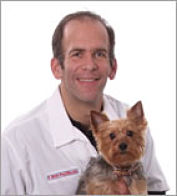
Dr. Michael E. Dym, VMD – Classical Veterinary Homeopathy
Believing that an individualized approach to this topic is needed for each pet, he also shares, “Regardless of what an animal guardian decides, this ‘veterinarian sensitive’ topic should be discussed between client and veterinarian about what is best for their individual pet, and an animal guardian should certainly be supplied with as much accurate and unbiased information on this issue as possible, in order to make as well informed a decision on which vaccinations their pets truly need.”
The Rabies Challenge Study
Dr. Dodds has done pioneering research on vaccinations and how they affect animals. Several years ago, she teamed up with Dr. Ronald Schultz to do The Rabies Challenge Study, www.rabieschallengefund.org. The study is being done to determine the long-term duration of immunity of the canine rabies vaccine, with the goal of extending the state-mandated interval for boosters by possibly five or seven years.
“These will be the first long-term challenge studies on the canine rabies vaccine to be published in the United States,” explains pet-vaccine disclosure advocate Kris L. Christine of Maine, who serves as co-trustee with Dr. Dodds.
If you go to this link, http://dogs4dogs.com/saferpet, you can purchase a DVD of Dr. Dodds speaking at the 2010 Safer Pet Vaccination and Health Care Seminar. All proceeds of this DVD, except for shipping expenses, will be donated to The Rabies Challenge Study.
I have attended two eye-opening and life-changing seminars with Dr. Dodds and two with Dr. Ronald Schultz. I saw them both together in 2009, where they were featured speakers at a NJ fundraiser for their study. In my very first seminar with Dr. Dodds, I learned about how adversely my own dog had been affected by being over-vaccinated.
Dr. Stephen Blake Shares His Thoughts about Vaccinations
There are some veterinarians who believe that even a single vaccination can cause damage and some who believe that rather than protect a dog from disease that vaccinations can instead cause a lower-grade version of that disease and a lifetime of chronic illness.
Here are some thoughts that Dr. Stephen Blake, also known as The Pet Whisperer, shared about the issue of vaccinating pets:
“If you read what I have written on my website, you will see that the decision to vaccinate or not is ultimately up to the caregiver, given their level of fear to vaccinate or not. This being said, I personally do not recommend vaccinating my animals or myself.”
On his website he says: “I have been encouraging my clients to not vaccinate or vaccinate less for the past 25 years.”
Here’s what he also says:
“As to the question of damage from vaccines: All of the animals that are born are vaccine-damaged from 100 generations of over-vaccinated ancestors. The vaccines they get in this life are but triggers for an already susceptible population born with chronic disease.
“This does not mean there is no hope for improving their health, but nonetheless the damage has been done before they are even conceived. Giving anything to a chronically-ill animal, whether it is raw food, classically-prescribed homeopathic remedies (i.e., the Simillimum), herbs, nutritional supplements, etc., is no guarantee they will be cured of their chronic disease.
“All we can do is do our best to avoid the vaccines, chemicals, poor diets, flea, tick and heartworm medications and give them clean water and food, good exercise, and, most importantly, our unconditional LOVE and work on improving their health through carefully prescribed treatment protocols.
“I tell all my clients and readers, there is always hope for any animal, even those that have been vaccinated. Do not be fooled into believing you can give a homeopathic remedy before and after a vaccination and prevent the inherent damage vaccines cause.
“My best advice is to avoid all vaccines unless there is no other way.”
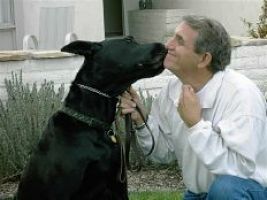
Dr. Stephen Blake – The Pet Whisperer (http://www.thepetwhisperer.com)
For those who make the decision to vaccinate their dogs, Dr. Dodds has some recommended protocols to follow. You can find them at http://www.itsfortheanimals.com/DODDS-CHG-VACC-PROTOCOLS.HTM. She recommends the optimal age an animal should be for each vaccine administered, appropriate time intervals between vaccinations and she also cautions about giving multiple vaccines in a single shot. In seminars, I have heard her call those kinds of shots that can totally overload a dog’s immune system the “wombo combos.”
My Great Teacher Socrates
Here’s what else I would have shared with those in the laryngeal paralysis group:
“I joined this group because a while back I was worried about my dog’s breathing. He is a 13-year-old English springer spaniel who has had many vaccinosis issues because back when he was younger, I didn’t know better. As Oprah often shares – and she got this important advice from her mentor and friend, the renowned poet Maya Angelou – ‘When you know better, you do better.’
“His name is Socrates and he has been an amazing teacher in my life. He continues to teach me every day, especially now about the canine aging process. Through a combination of classical homeopathy and my own healing work on him, his breathing is so much better. The thought of him even needing surgery has happily faded into the background.

Socrates enjoyed sniffing flowers in the garden. Photo by Donna El Haber, 2008. All rights reserved.
“A number of months ago, thanks to the success of his alternative therapies, I no longer have to worry about the possibility of a tieback surgery for him. What has been more of an issue is the accompanying degenerative myelopathy and his rear-end weakness and general arthritis issues. I am thankful that classical homeopathy, Tellington TTouch®, acupressure and my energy healing work have helped considerably with those issues as well.”
List of Links to Articles about Vaccinations
Since my dog has been so greatly affected by the vaccinations he received, as have so many other dogs, I have been an avid student on the subject and have compiled a list of links to articles about the vaccination issue. The list of links to articles about vaccinations can be found in my e-book, “25 Ways to Maintain a Happy and Health Dog,” that can be downloaded on my home page. It can also be found here on my website in the Resources Section.
Someone in the laryngeal paralysis group wrote that certain members who responded were “stealing the joy” of the woman who had vaccinated her senior dog. He was referring to the joy of celebrating her dog’s successful surgery and her health and well-being.
Here’s my response to that comment:
“As for ‘stealing your joy,’ I truly believe that any of us who wanted to caution you about giving the rabies vaccine to your most beloved dog only wanted to extend your joy with her and only wanted the best for both of you. As it is, I’d say you’ve done incredibly well to have a Lab who is 13. She is clearly a very lucky girl to have such a devoted guardian.
“All of us love our dogs dearly and deeply. We wouldn’t be in this group spending time reading and learning if we didn’t. I think your post brought up an important issue and I hope those who take the time to do more research will then ‘know better’ and make different decisions in the future.
“At any given time, we are all just doing the best we can with the knowledge we have. That’s why all our dogs are such incredibly gifted teachers. I believe it is one of the most important reasons why they come to be with us and grace our lives with so much wisdom and love. They are all so forgiving and know we are doing the best we can for them with the resources that each of us has.
“I would like to offer a prayer that guardians all over the world learn as much as they can on issues affecting the health and well-being of their animals so they can make the most informed decisions in conjunction with medical practitioners they trust. And I would encourage them to become pro-active and to find a strong voice to speak out whenever they disagree with a medical practitioner or believe their animals are receiving improper or questionable medical care. At the very least, if they are ever in doubt, they should make the time and effort to get a second opinion. If they fear they will be questioned or ‘bullied’ or made to feel guilty in any way, then they should come armed with the research that influenced their decisions and discuss it with their veterinarians.”
Dr. W. Jean Dodds – One of my Heroes
Change sometimes comes slowly. Dr. Dodds has been working for many years on the issue of vaccinations for animals and the effects of over-vaccination, especially in how vaccinations have caused an array of autoimmune and other serious health challenges for cats, dogs and horses too. In an article on http://www.itsfortheanimals.com/DODDS-CHG-VACC-PROTOCOLS.HTM, she shares what some of those adverse effects are:
“The onset of adverse reactions to conventional vaccinations (or other inciting drugs, chemicals, or infectious agents) can be an immediate hypersensitivity or anaphylactic reaction, or can occur acutely (24-48 hours afterwards), or later on (10-45 days) in a delayed type immune response often caused by immune-complex formation. Typical signs of adverse immune reactions include fever, stiffness, sore joints and abdominal tenderness, susceptibility to infections, central and peripheral nervous system disorders or inflammation, collapse with autoagglutinated red blood cells and jaundice, or generalized pinpoint hemorrhages or bruises. Liver enzymes may be markedly elevated, and liver or kidney failure may accompany bone marrow suppression.
“Furthermore, recent vaccination of genetically susceptible breeds has been associated with transient seizures in puppies and adult dogs, as well as a variety of autoimmune diseases including those affecting the blood, endocrine organs, joints, skin and mucosa, central nervous system, eyes, muscles, liver, kidneys, and bowel. It is postulated that an underlying genetic predisposition to these conditions places other littermates and close relatives at increased risk.
“Vaccination of pet and research dogs with polyvalent vaccines containing rabies virus or rabies vaccine alone was recently shown to induce production of antithyroglobulin autoantibodies, a provocative and important finding with implications for the subsequent development of hypothyroidism (Scott-Moncrieff et al, 2002).
“Vaccination also can overwhelm the immunocompromised or even healthy host that is repeatedly challenged with other environmental stimuli and is genetically predisposed to react adversely upon viral exposure. The recently weaned young puppy or kitten entering a new environment is at greater risk here, as its relatively immature immune system can be temporarily or more permanently harmed. Consequences in later life may be the increased susceptibility to chronic debilitating diseases.”
Dr. Dodds is one of my heroes not just for her brilliance, but also for the incalculable ways in which she has helped animals with her research and insights. Those of us who know and have sent Dr. Dodds queries about our dogs’ medical conditions and about thyroid and other tests are all amazed and grateful at how quickly and comprehensively she responds to questions, sometimes even when she’s traveling abroad. We also recognize the depth of her brilliance and her keen and conscientious dedication to this work and to helping her clients and animals around the world. Her website, where you can learn more about Dr. Dodds and her work, is http://www.hemopet.com.
I also greatly admire the tremendous courage it took for her to initially speak up about this issue so many years ago when what she was sharing was so incredibly unpopular. At veterinary conventions, with her questions and insights about the dangers of annual vaccinations, she was walking a radical and untrodden path and seemed to be but “a lone and renegade voice in the wind.”
Over the years with her research and her documentation of all the adverse effects of vaccinations, her voice has gotten louder and louder and it has ignited a resounding chorus of voices that include veterinarians, researchers, professionals in the dog and cat worlds and dog guardians from around the world.
What was once a radical opinion has become part of accepted knowledge for many, but, alas, not for all. Indeed, laws have been changed as a result of those brave and insightful voices and studies that have been done linking serious illness and chronic disease with over-vaccination and showing the inefficacy of over-vaccinating. But there are many who are lagging behind with this knowledge.
Indeed, based on what many veterinarians have shared who are on the forefront of this anti-vaccination revolution, so much damage has already been done. The future holds more and more the promise of wise and informed veterinarians who will continue to challenge the status quo and stand up for the rights of our animals who deserve to live much healthier lives free of chronic diseases and debilitating autoimmune issues.
The Rabies Challenge Study
Now Dr. Dodds and Dr. Schultz are trying to show that initial vaccinations have a duration of at least five to seven years and perhaps even longer – maybe for the entire life of an animal. If you want to learn more about The Rabies Challenge Study and if you would like to make a donation, please go to www.rabieschallengefund.org. It is an important study that will serve our animals well and those yet to be born.
Going forward, may we all strive to “know better” and then “do better.” And may courageous veterinarians continue to step forward and speak their truth, even if it means deviating from the majority of their peers. We desperately need courageous souls in all areas of life to be on the cutting edge of change and reform to help all of us move forward in more positive ways.

Dr. Ronald Schultz, professor and chair of pathological sciences in the School of Veterinary Medicine, at the University of Wisconsin in Madison. Photo from www.dogs4dogs.com
Dr. Bob Rogers Speaks Out About the Vaccination Issue to His Colleagues
Back in 2003, Dr. Bob Rogers, DVM, Spring, Texas, http://www.critteradvocacy.org, boldly spoke out about change that was needed within his own profession. Here is some of what he wrote to his fellow veterinarians (you can find the full text of what he said on http://www.critteradvocacy.org/Finding%20The%20Courage%20To%20Change.htm):
“Managing change and transition is not easy, even if the change is positive. Even if it means we benefit financially. But what if it means we don’t benefit financially?
“I am the first to admit when faced with changing my vaccination recommendations I experienced the same reservations, and yes, even fear and anger, just as many of you. ‘The experts must have overlooked something,’ I said. We all experience the same phases when faced with change.
“Then I got a grip on my anger and disbelief and did some research. I found out the studies have been done, and although nothing is ever completely without a little pocket of unknowns, enough is known to warrant change. I was shocked to find that there are no studies that show antibody titers wane with time for certain diseases. I was shocked to find that no studies have been done to show that re-administration of MLV vaccines like distemper and parvo actually ‘boost’ the immune system. In fact, studies show they have no effect.”
Then talking about how other industries managed ethical challenges, Dr. Rogers spoke about the folly of the Edsel, mathematical errors made in Pentium chips, the crisis in the Catholic Church with child molesters, and the public relations nightmare of accidents caused by faulty tires. He goes on to say:
“The veterinary profession could learn from these examples. We are harming pets by causing fibrosarcomas, possibly hypothyroidism and IMHA (immune-mediated hemolytic anemia). The research has been done to support reduced vaccination recommendations. More importantly, research shows that unnecessarily repeating vaccines has no effect. The AVMA Council on Biologic and Therapeutic Agents concluded that no research exists to support our present prevailing recommendations. Doctors like Ford, Schultz and Wolf have presented the data and made persuasive arguments with persistence and dignity. After 7 years, less than 7% of veterinarians have changed. I feel it is fair to say many refuse to listen.
“I have filed complaints about veterinarians giving unnecessary vaccines. I am truly saddened that my complaints have been necessary. I do not think veterinarians are intentionally committing fraud. I am not asking that anyone be punished. I do not want to see our public image degraded.
“I picture myself as being like that one insurance clerk who brought the issue of tire separation to the forefront. This is a wake-up call. Look at how long others and I have tried to work within the system. Ask yourself if the public has a right to know the truth and make informed decisions on their pets’ health.
“I am open to suggestions on how to evoke change. I will remain committed. I will not be drawn off-center by angry remarks. I will not respond to accusations or attacks on me personally. This issue is not about me. I intend to confine my comments to sharing of scientific data only. Feel free to ask me about the science behind what I have said, but do your homework first. If you can point out that something I have said is inaccurate, show me the data and I will be open to change.
“The AVMA, State and Local VMAs (Veterinary Medical Associations) have circled the issue because it is unpopular. From articles in magazines from ‘Dog World’ to ‘Readers Digest,’ the public knows more about this than our leaders. Moral leadership and farsighted businessmen have failed to appear to lead our profession through this tough time. We have one of the best public images of any profession. Are we willing to prove we deserve it?
“Rosalynn Carter said: ‘A leader takes people where they want to go. A great leader takes people where they don’t necessarily want to go, but ought to be.’ I pray every day that a great leader will emerge from within our profession. All I can do is make waves.
“I am asking veterinarians to get the facts and make informed and open-minded decisions. Compromise is good as long as it is recognized that it is a compromise. …
“Williams Bridges, in his book, Managing Transitions points out that before we can make a transition, we must leave our comfort zone, travel through a time of unsettledness, and then finally arrive at a new beginning. We go through times of mixed messages, one step forward and one step backwards, to finally arrive at a new beginning. I know that for most of us, the more we research the data available, the more easily we will realize a path that is clear. …
“You have a choice and a voice in the future of our profession. I know you didn’t ask for this, but you are a veterinarian, this is your profession, and this is in front of you. You could make a difference.”
We Can All Make an Important Difference
We can all make a difference. My best hope is that I, too, can make a difference with this blog post. It will have been worth it if even a single guardian decides to run titers instead of re-vaccinating his or her dog, cat or horse. It will have been worth it if someone decides not to vaccinate a pet with health issues or a senior animal. It will have been worth it if guardians speak up to veterinarians who insist on re-vaccinating their pets. It will have been worth it if someone decides to switch from his or her veterinarian to another one who is more enlightened and current on the preponderance of evidence about how vaccinations have adversely affected the canine and feline populations.
Dr. Rogers called upon his fellow veterinarians to speak up, be open to change and stand courageously in some new truths. It can also be a call for all of us to be more courageous about standing up for what we believe to be the truth — even if it is unpopular and even if we are but a “lone voice in the wind.”
It takes that first lone voice to begin to create a symphonic chorus. It is sometimes not easy, but it is so important to speak your truth, especially if you know it will benefit others.
May we all summon up courage whenever needed to fearlessly stand in our truth to help make a positive difference in the world. And may we all always stand up to protect and defend our animals and provide them with the best possible health and the best possible lives that we can. When we know better, we certainly should do better.
With blessings, love and light,
Rev. Donna
Let's Chat to See If I Can Help!
Let's Chat to See If I Can Help!
Would you like to know more?
To learn more about my packages for people click here. For packages for guardians and pets click here. For those interested in a single session, click here. If you would like a free 30-minute get acquainted phone or Skype session with me, you can schedule an appointment at www.meetme.so/donnaelhaber. You can also email me at info@lovehealingandmiracles.com.




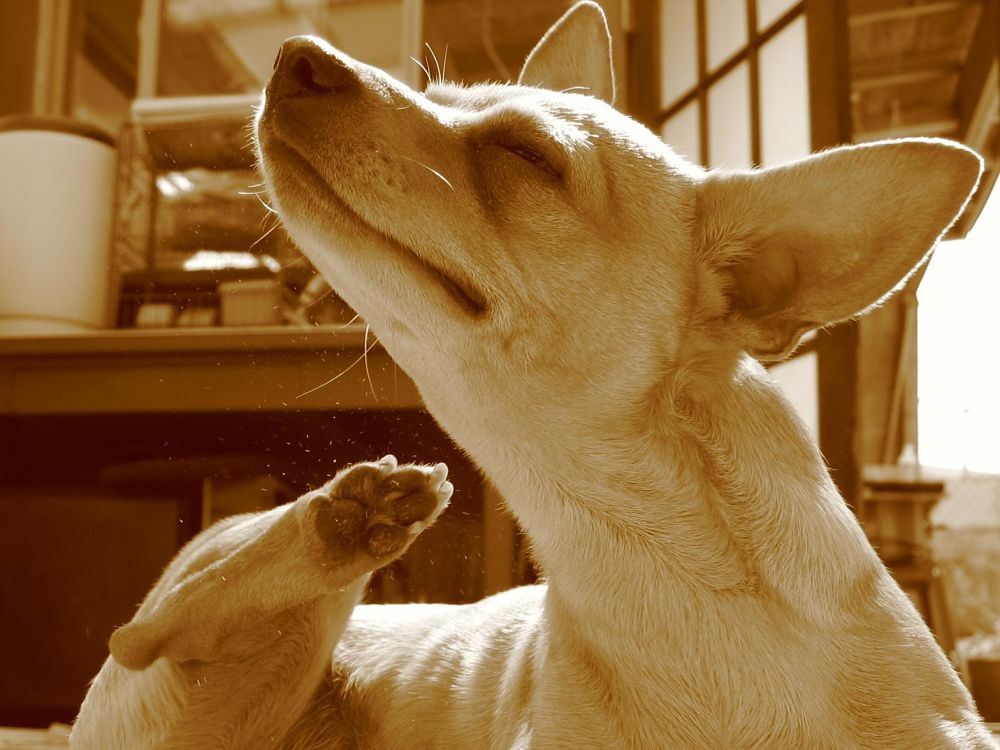
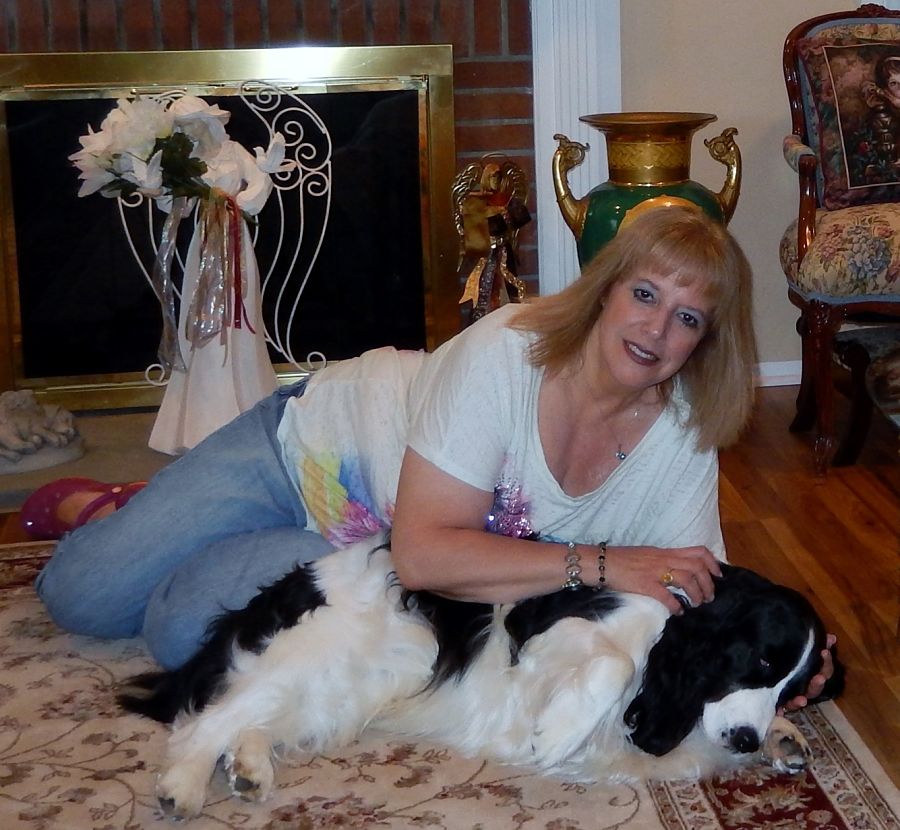
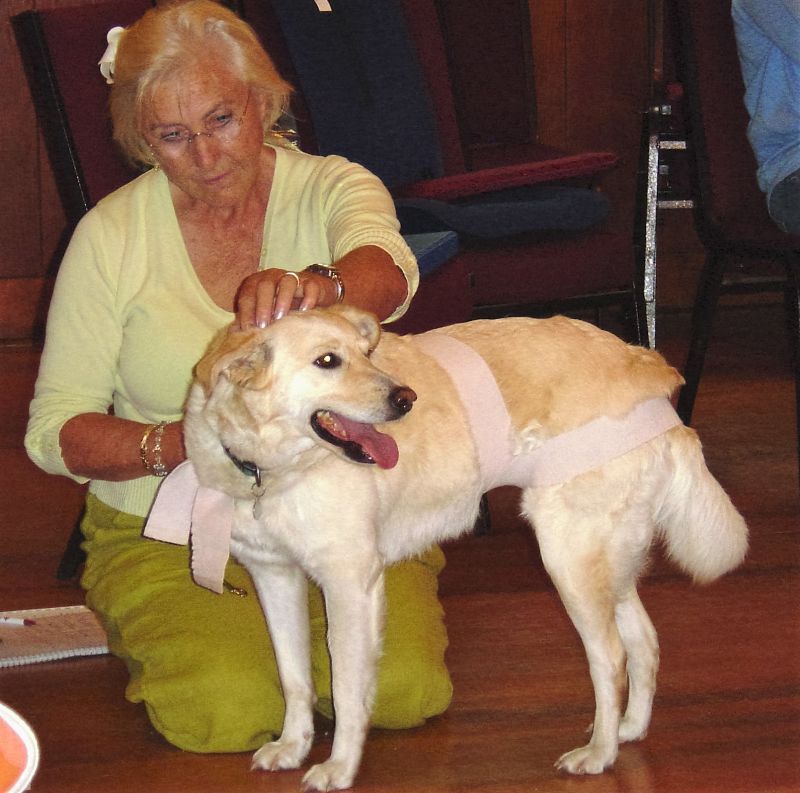
This post is great. Thank you for this post. I like this type of people who share knowledge with others.
You are so welcome. Thank you for your comment. It is my honor and privilege to share the information in this article. My best hope is that you and anyone else who reads it and feels positively about it will forward it on to others who have companion animals. As I share in the post, and as I so strongly believe — and as Oprah and Maya Angelou know and have shared with the world — “when you know better, you do better.”
All our pets deserve no less than our love and protection and to keep them in the best health we can for as long as we can. They are often our greatest teachers in life. It is the least we can do for them in return for the great gifts they share with us during their lifetimes.
With blessings and thanks,
Donna
High quality info. Keep up the great work.Very Useful blog
Thank you so much!
Blessings,
Donna
I just happened upon your site. Pretty intriguing topic, it really makes me think. I am going to have to read some of your other articles.
That’s great. The post was written for that exact reason — to get readers to think about the issue because it is so important. My best hope is that those who vaccinate their animals regularly will pause and give careful thought to their decisions in the future.
I hope you do read more of my blog posts. Check out my next post on Reconnective Healing. It’s an amazing way of helping people and animals heal. You can also find a bunch of posts I did on Typepad last year by checking out my first post on WordPress where I include links to my previous posts.
I’m so glad to have you as a new reader. Welcome!
Blessings,
Donna
Hi buddy, your blog’s design is simple and clean and i like it. Your blog posts are superb. Please keep them coming. Greets!
I would like to start my own blog one day. This was a really nice blog that you made here. Keep up the success
Greetings. I really did some web surfing and found this blog. I decided by way of this blog put up and it is really incredible.I definitely genuinely enjoy your website.Perfectly, the chunk of posting is in guarantee the very finest on this genuinely worth though subject. I added it and i’m hunting ahead to your upcoming site reports. I also observed that your website has some excellent connecting completed to it. I will correct apart get hold of your rss feed to stay informed of any revisions. Wonderful information you received right here.Delight maintain revise on your fantastic article.Thanks.
Thank you so much. My intention was to provide an array of information on the subject to help readers make more informed decisions on behalf of their pets. I’m glad that this post has struck a chord with a number of readers. And your gratitude, and the gratitude of others who have responded, is deeply appreciated.
Truly, if the life of even one dog will be better because of this post, then the time I spent working on it will have been so worthwhile. There has recently been some very good news that I will be sharing in a future post about The Rabies Challenge. So I will continue to share additional information in future posts.
Blessings,
Donna
hey man, nice blog,I really like it and added it to bookmarks. keep up with good work
Thank you so much. I look forward to sharing more posts on the health and well being of animals, on healing for people and animals and on spirituality. Thank you for taking the time to comment. I appreciate it.
Blessings,
Donna
I agree with you totally. Please write more.
Thank you so much! Stay tuned. I certainly will be writing more. 🙂 Several new posts are currently brewing.
Blessings,
Donna
I love your point of view and seems like I’m not the only one.
I’m so glad that you like my point of view. 🙂 And I am also glad that you are not the only one. The main reason I’m glad is because ultimately that means to me that your pet (or pets) will benefit from the information I have shared.
Blessings and all the best,
Donna
You guys really seem to know your stuff this blog of information was very useful.:)
Thank you very much. And yes, I do know “my stuff” when it comes to the vaccination issue and the chronic disease that vaccinations can cause. My dog has been a marvelous teacher and every day I am grateful for all the ways he has helped me become a better and more informed guardian. I’m glad that you found the information in this post useful and I hope it helps inform some of your decisions going forward with your own pet.
Blessings,
Donna
Kudos to you! This is a really good blog here and I love your style of writing. How did you get so good at blogging?
Thank you for your very kind comments. I have been a writer for many years and I am also passionate about the subjects I am writing about and sharing with you here in this blog. It is my pleasure and privilege to share my thoughts with others. We all can learn so much from one another.
Blessings,
Donna
I’m pleased with exactly how you have dealth with this subject matter in such a succinct strategy. I found your site while searching by means of Google and I’ll need to admit that I’ve subscribed to it already.
Thank you so much for commenting and for subscribing!
Blessings,
Donna
Hello, nice to come to your blog!
It’s so nice to have you. My best hope is that the information was valuable for you.
Blessings,
Donna
What an amazing article. I am trully glad. Keep writing amigo
De nada, mi amigo. (You’re welcome, my friend.) It is my pleasure.
Muchicimas gracias,
Donna
Appreciate your sharing this inspirational blog post, it truly is surely an eye opener.
Fabulous! I’m so glad you learned something important from it.
Blessings,
Donna
I must admit this post is very wonderful . Thanks once again for the push!
Thanks so much for your comment. I have spent a lot of time reading about the subject and attending seminars. My dog has also been a great motivator for me to learn as much as I can about the vaccination issue and how it can cause so many autoimmune and other diseases and a lifetime of chronic illness. The time I spent writing the article was well worth it if even one dog’s life will be better served by it.
Blessings,
Donna
I agree with your thoughts here and I really love your blog! I’ve bookmarked it so that I can come back & read more in the future.
Great! Thanks so much. Glad to have you on board.
Blessings,
Donna
Great article I’ve just added to my bookmark list.
I will talk about it to my friends. Thanks 😉
You’re very welcome. Thanks for spreading the word to help animals.
Blessings,
Donna
Cant get enough of this blog. Your opinion and facts truly let people know what its all about.
Just have to thank you for this amazing information. This is what I was searching for (Thanks Bing
You are so welcome!
Blessings,
Donna
After a careful read I thought it was very enlightening. I appreciate you taking the time to put this article together. I once again find myself spending way to much time both reading and commenting. But what ever, it was still worth it!
You are very welcome Thomas. I am glad that this post is resonating for so many people. My best hope is that it will help many animals.
Blessings,
Donna
Great info. I like all your post. I will keep visiting this blog very often. It is good to see you verbalize from the heart and your clarity on this important subject can be easily observed.
Thank you so much, Kevin. My passion about this subject does indeed come from my heart.
Blessings,
Donna
The content on this article is really a single of the most beneficial material that We have ever occur across. I love your submit, I’ll appear back to verify for new posts.
Thank you Crista!
Blessings,
Donna
There are some attention-grabbing deadlines on this article but I don’t know if I see all of them heart to heart. There is some validity but I’ll take maintain opinion till I look into it further. Good article , thanks and we would like extra! Added to FeedBurner as nicely
I just had to take a moment to thank you for sharing this with us. As a average citizen I’ve really appreciated the great insights and content obtained from visiting your blog. I hope you will continue to develop a intelligent community here as I will…
I’ve bookmarked, Dugg, and I joined the RSS subscription. Thanks! .
this blog is fantastic, there are plenty of really good content and articles
Just ran across your blog, man this is an amazing site, loved the read. gonna keep checking out your new stuff. thanks
Brilliant!!! Bookmarked this page that has this valuable instruction. Will come back to see if there are any updates. You, the author, are a master. Thanks
Thank you for such a lovely comment. There will certainly be more to come. Glad to have you aboard.
Blessings,
Donna
I like this site so much, saved to bookmarks .
Thank you so much!
Blessings,
Donna
Maybe you’re right, but I still have my own opinion about this.
I think that’s great that you are even open to thinking that I and the many professionals I’ve quoted in my blog post may be right.
You are entitled to your opinion. I don’t think it’s easy for any of us to shake off some long-held beliefs, especially if they’ve been driven home year after year by the professionals who are supposed to be very knowledgeable about the health and well-being of our pets.
If you read Dr. Rogers’ comments and his letter to his fellow veterinarians in my post, you are not alone in “having your own opinion about this” even though the clinical evidence, research and data have been piling up for years to refute the professional opinions of some of Dr. Rogers’ colleagues.
I think we all have a tendency to hold on to what is “familiar.” I don’t think it is easy for any of us to change. It’s why change is too often so slow in coming.
The good news is that you somehow found my blog and read what I wrote. And I believe some seeds have already been planted.
I give you a lot of credit for saying that “I may be right” about what I shared. I am sure most of all you want to do what’s best for your animal. Keep reading and doing your own research and also listen to your heart and gut. I wish you and your beloved pet all the best.
Blessings,
Donna
Great post, I admire the writing style 🙂 A little off topic here but what theme are you using? Looks pretty cool.
Thank you so much. I appreciate your comment about my writing style. Glad so many of you like the look of my blog. I think the theme is called Dreamscape.
Blessings,
Donna
Nice post! Resources such as the one you mentioned here will be extremely helpful to myself! Thanks once again for the push!
It is truly a nice and useful piece of information. I’m glad that you simply shared this helpful info with us. Please stay us up to date like this. Thanks for sharing.
I really appreciate this post. I¡¦ve been looking everywhere for this! Thank goodness I found it on Bing. You have made my day! Thank you again
so much excellent info on here, : D.
Thank you for the sensible critique. Me and my neighbor were just preparing to do a little research on this. We got a grab a book from our local library but I think I learned more clear from this post. I’m very glad to see such magnificent information being shared freely out there.
Thanks so much for sharing!
Thanks for this! I’ve been searching all over the web for the details.
I always was concerned in this topic and stock still am, thanks for posting.
Hello I am so grateful I found your webpage. Thank you for your post and keep giving out great information!
A good sight on this you have, whilst I do not accept almost everything which has been explained I can see your case.
I wanted to thank you for this great read!! I definitely enjoying every little bit of it.
What a lovely blog page. I’ll definitely be back. Please maintain writing!
After study a few of the blog posts on your website now, and I truly like your way of blogging. I bookmarked it to my bookmark website list and will be checking back soon. Pls check out my web site as well and let me know what you think.
Hi there. I found your blog through Bing. This is an extremely well written post. I’ll make sure to bookmark your blog it and come back to read more of your useful information. Thanks again for the post. I’ll definitely be returning.
Bookmarked! Thanks for an amazing post, will read your others posts.
Wonderful web site. Lots of helpful info here. I’m sending it to a few buddies. And naturally, thank you for your effort!
Spot on with this write-up, I really suppose this website wants way more consideration. I’ll in all probability be once more to read much more, thanks for that info.
Nice response in return of this difficulty with real arguments and telling the whole thing about that.
Excellent post! We are linking to this great article
on our site. Keep up the good writing.